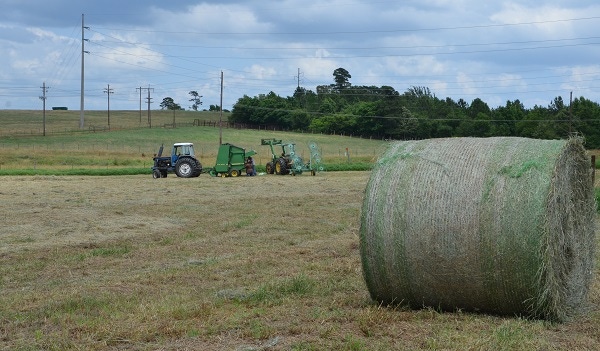October 1, 2014

Available hay supplies across Texas depend on location. Some areas have plenty; others have none. It all depends on where you are, says Larry Redmon, Texas A&M AgriLife Extension Service state forage specialist, College Station.
Rainfall makes the difference.
East of U.S. Interstate 35, all the way to San Antonio, and northeast of Interstate 37 to Corpus Christi, the rains have generally been significant throughout the season, and supplies are good, Redmon said.
“So a lot of people in that region have some full hay barns and are in pretty good shape,” he said. “But having said that, there are still some pockets, even within that region, that have not had the rains.”
West of I-35, the hay supplies are extremely site specific. Parts of the Edwards Plateau have received some good rains, but other parts of that same region have not.
“In the Vernon area, in the Rolling Plains, essentially they are still like they were in 2011, the catastrophic drought year,” he said. “They have not changed at all; they are under exceptional
Some hay is moving from hay-surplus areas in the eastern parts of the state to the western, Redmon said.
“I looked at what Levi Russell, AgriLife Extension economist in Corpus Christi, is showing on his budgets. It kind of depends, but he was showing breakeven costs on Bermuda grass hay big round bales from $44 to close to $60,” he said. “So I’m assuming that for some people buying hay, they are going to be paying from $60 to $70, depending on the size of the bale, especially for any hay that has fertilizer costs associated with it.”
More information on the current Texas drought and wildfire alerts can be found on the AgriLife Extension Agricultural Drought Task Force website at http://agrilife.tamu.edu/drought/.
You May Also Like




